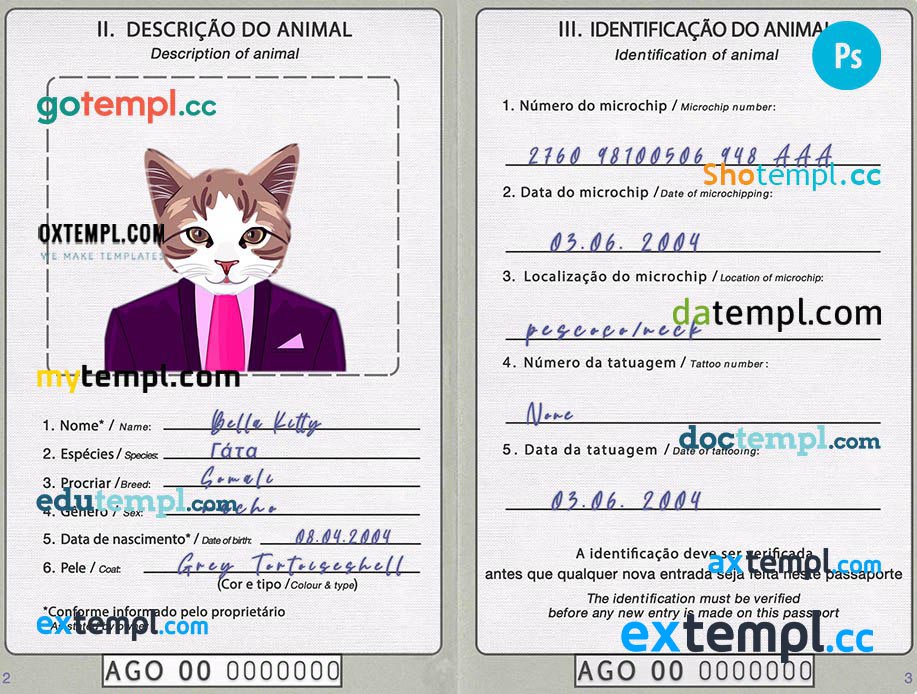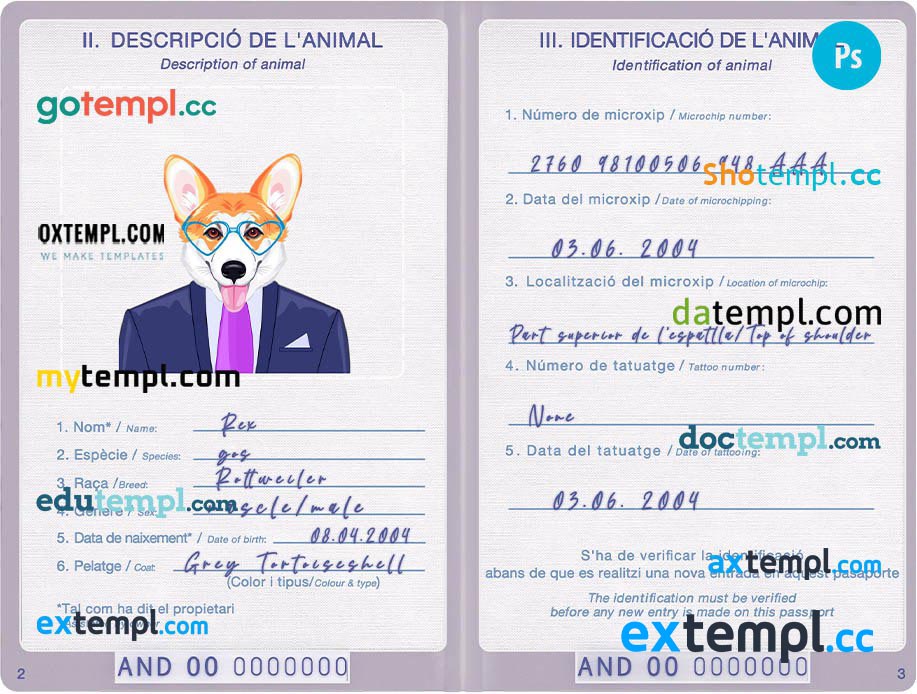In an increasingly interconnected world, where individuals and families often traverse international borders for work or leisure, the demand for pet-friendly travel options has risen significantly. Recognizing the importance of ensuring the safety and well-being of animals during transit, many countries have embraced the concept of “animal passports.” These documents are not just a bureaucratic formality; they play a crucial role in facilitating the movement of pets across borders while safeguarding their health and preventing the spread of diseases.

Key features of animal passports:
1.Identification Information: Animal passports typically include essential identification details such as the pet’s name, breed, age, and markings. This information is crucial for ensuring that the correct animal is being transported and aids in reuniting lost pets with their owners.
2. Microchip and Registration: Many countries require pets to be microchipped for identification purposes. The passport includes the microchip number and details of the database where the pet’s information is registered. This not only helps in identifying the pet but also serves as a deterrent against illegal trade and pet theft.
3. Vaccination Records: One of the primary purposes of animal passports is to track a pet’s vaccination history. Proof of vaccinations, especially for diseases like rabies, is often a prerequisite for international travel. This ensures that pets are not carriers of diseases that could be transmitted to other animals or humans.
4. Health Certificates: Animal passports commonly include health certificates issued by a veterinarian. These certificates attest that the pet is in good health and fit for travel. This step is crucial in preventing the spread of diseases and ensuring the safety of both the animal and the community it is entering.
5. Travel History: The passport may also document the pet’s travel history, including previous international trips. This information can be useful in case of disease outbreaks or for tracking the movement of animals in the event of public health concerns.
Benefits of animal passports:
1.Facilitated International Travel: Animal passports streamline the process of traveling with pets internationally. Owners can provide a single document that encompasses all the necessary information, reducing the need for extensive paperwork and facilitating smoother border crossings.
2. Disease Control: By maintaining a record of a pet’s health and vaccination history, animal passports play a crucial role in preventing the spread of diseases. This is especially important in regions where certain diseases may be endemic, and stringent measures are required to protect local fauna and human populations.
3. Pet Safety and Welfare: The emphasis on health certificates and vaccination records ensures that pets are fit for travel, minimizing the risk of stress-related issues and health complications during the journey.
4. Combatting Illegal Trade: The inclusion of microchip information in animal passports serves as a powerful tool in combating illegal pet trade and theft. Authorities can quickly verify the legitimacy of a pet’s ownership, contributing to the overall safety and security of pets.
In response to the widespread adoption of animal passports, various countries and international organizations have developed standardized templates to ensure consistency and ease of use. These templates serve as a framework for compiling essential information about the pet, making it easier for both pet owners and authorities to navigate the documentation process.
Animal passport templates typically feature clear sections for crucial details such as the pet’s identification information, microchip details, and vaccination records. These standardized formats help streamline the creation of passports, reducing the likelihood of errors and ensuring that all necessary information is readily available.

As the global community becomes increasingly interconnected, the need for standardized protocols for pet travel is more pronounced than ever. Animal passports represent a significant step forward in ensuring the safety, welfare, and responsible movement of pets across borders. By fostering collaboration between nations and establishing common standards, the international community can continue to refine and improve these documents, ultimately enhancing the well-being of our four-legged companions in a globalized world.